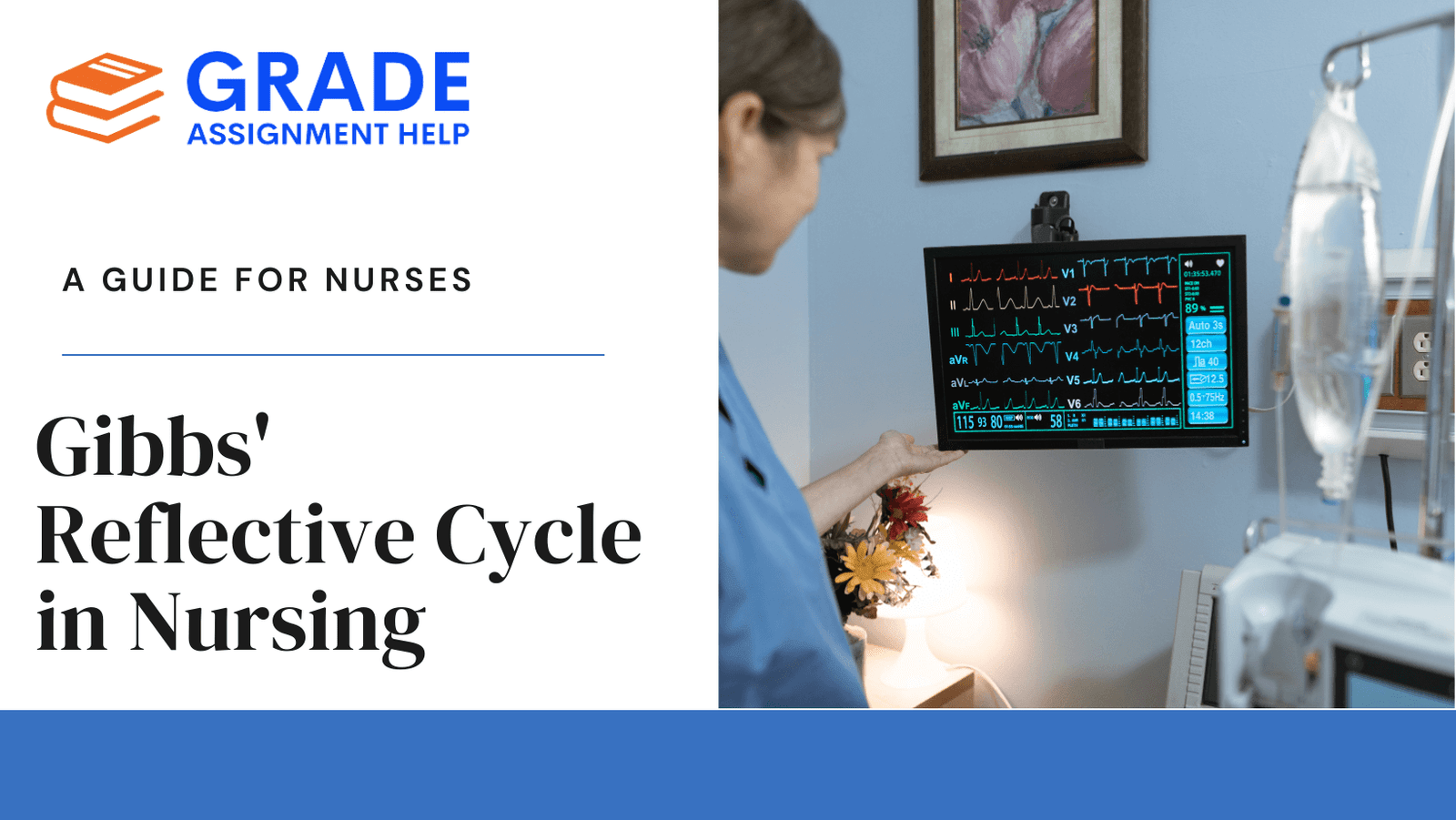

Reflection is a critical component of professional nursing practice, allowing nurses to analyse their experiences, improve patient care, and develop their skills. One of the most widely used frameworks for reflection in nursing is Gibbs' Reflective Cycle, developed by Graham Gibbs in 1988. This structured model provides a systematic way to examine clinical situations, enabling nurses to learn from their actions and make better decisions in the future.
In this comprehensive guide, we will explore Gibbs' Reflective Cycle in nursing, break down its six stages, and provide real-life nursing examples. By the end of this article, you will have a thorough understanding of how to use this model effectively in clinical practice.
Gibbs' Reflective Cycle is a structured method of reflection designed to help individuals critically analyse an experience and learn from it. It consists of six stages:
This model is particularly valuable for nurses, as it enables them to reflect on patient interactions, identify areas for improvement, and enhance their clinical decision-making.
Nursing is a dynamic and high-pressure profession that requires continuous learning, adaptation, and improvement. Reflection is essential for professional growth and ensures that nurses can provide the best care possible. Here’s why Gibbs' Reflective Cycle is beneficial in nursing:
✅ Enhances Patient Care – By analysing past experiences, nurses can identify best practices and areas for improvement.
✅ Develops Clinical Skills – Reflection allows nurses to refine their technical skills and critical thinking abilities.
✅ Builds Confidence – Understanding past mistakes and successes boosts self-assurance in clinical decision-making.
✅ Improves Communication – Helps nurses develop better relationships with patients, colleagues, and healthcare teams.
✅ Supports Emotional Well-being – Reflecting on stressful experiences can help prevent burnout and emotional fatigue.
To understand how this model works in a real-world nursing scenario, let us go through each stage with a practical example.
1. Description – What Happened?
In this first stage, nurses provide a clear, factual, and objective account of the situation.
Example (Nursing Context)
"During my night shift in the emergency department, I was assigned to a 68-year-old male patient experiencing chest pain. I conducted an initial assessment and noted that his vitals were stable, but he appeared uncomfortable. I reported my findings to the senior nurse, who advised me to monitor him closely. After 30 minutes, the patient’s condition worsened—he became short of breath, and his blood pressure dropped. I immediately called for assistance, and the medical team provided emergency intervention, stabilizing him shortly after."
💡 Tip: Focus on the facts of the situation rather than opinions or interpretations.
2. Feelings – What Were You Thinking and Feeling?
In this stage, nurses reflect on their emotions and thoughts during the situation. This helps them process their experiences and develop emotional resilience.
Example (Nursing Context)
"At the beginning of my shift, I felt confident in my ability to assess and monitor my patient. However, as his condition worsened, I became anxious and uncertain about whether I had done enough. I feared that I might have overlooked a critical sign. When the senior nurse and medical team took over, I felt a sense of relief but also disappointment in myself for not escalating the situation sooner."
💡 Tip: Be honest about your emotions while maintaining a learning mindset.
3. Evaluation – What Was Good and Bad About the Experience?
Here, nurses reflect on what went well and what could have been improved.
Example (Nursing Context)
✅ What went well?
❌ What could have been better?
💡 Tip: Consider both strengths and areas for improvement.
4. Analysis – Why Did Things Go Well or Poorly?
This stage involves a deeper examination of the factors that influenced the outcome.
Example (Nursing Context)
My initial assessment was correct because I had followed training guidelines.
My hesitation to escalate was due to lack of experience in recognizing early warning signs.
The senior nurse and medical team responded well because of clear hospital protocols for managing chest pain.
My anxiety was heightened because I had never handled a deteriorating patient alone before.
💡 Tip: Support your analysis with research, hospital guidelines, or nursing theories.
5. Conclusion – What Could Have Been Done Differently?
This stage focuses on identifying lessons learned and considering alternative actions.
Example (Nursing Context)
"If I encountered a similar situation again, I would escalate my concerns sooner rather than waiting for clear signs of deterioration. I would also trust my clinical judgment more and communicate my observations more assertively."
💡 Tip: Focus on actionable takeaways that you can apply in the future.
6. Action Plan – How Will You Improve for the Future?
In the final stage, nurses develop a plan for future improvement based on their reflections.
Example (Nursing Context)
Attend training on early recognition of deteriorating patients.
Shadow senior nurses to observe how they handle similar situations.
Practice assertive communication in team discussions.
Engage in regular reflective practice to build self-awareness.
💡 Tip: Your action plan should be specific, realistic, and focused on growth.
Additional Example: Gibbs' Reflective Cycle in Nursing Example (Patient Communication)
Scenario
A nurse is caring for a patient with terminal cancer who is anxious and emotional. The nurse struggles to comfort the patient and later reflects on the experience.
Gibbs' Reflective Cycle is a valuable tool for nurses to evaluate their experiences, enhance clinical skills, and improve patient care. By systematically analysing patient interactions, nurses can build confidence, learn from challenges, and develop into better healthcare professionals.
Key Takeaways
✅ Reflection helps nurses improve their decision-making and patient interactions.
✅ Gibbs’ model provides a structured framework for learning from experiences.
✅ Regular reflection leads to better professional growth and emotional resilience.
At Grade Assignment Help, we understand that nursing students face immense challenges in their academic journey, including writing reflective essays, case studies, and critical analysis assignments. Using Gibbs' Reflective Cycle effectively in your assignments requires a deep understanding of clinical experiences, critical thinking, and structured writing. We provide help in Nursing Assignment Help.